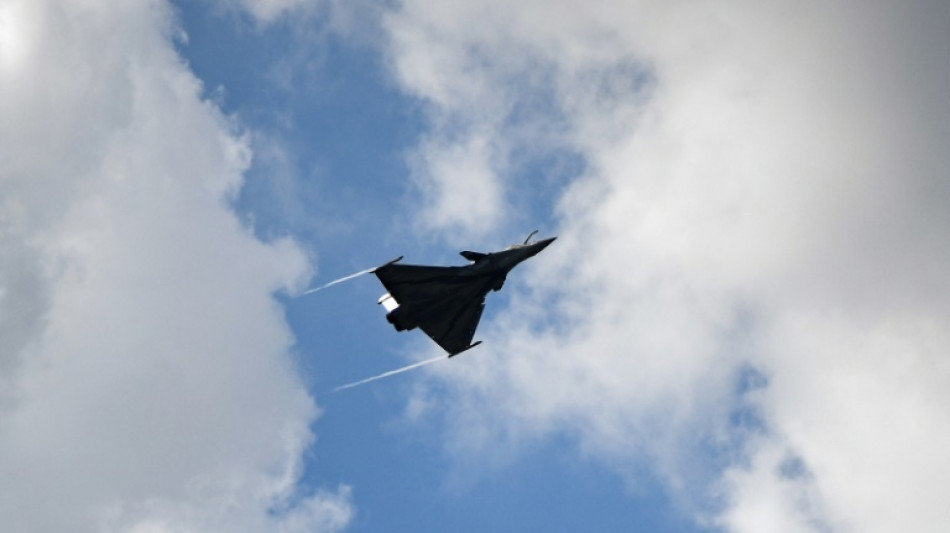
RBGPF
-1.2700

War, tariffs and the Air India crash will cast a shadow over the Paris Air Show as the aerospace industry's biggest annual gathering opens on Monday.
More than 2,400 companies from 48 countries are showing off their hardware at the week-long event at Le Bourget airfield on the outskirts of Paris.
The sales rivalry between Airbus and Boeing usually drives the headlines as the world's top civilian planemakers announce many of their biggest orders at the air show.
But this year's event "is much more complex", said Airbus chief executive Guillaume Faury, who also chairs the board of the Gifas association of French aerospace firms that organises the biennial event.
The list of challenges is growing.
Russia's war in Ukraine is stretching into its fourth year and there are fears of a wider conflict in the Middle East after Israel launched strikes on Iran on Friday, disrupting commercial flights across the region.
The world economy is expected to slow sharply after US President Donald Trump launched his tariff blitz in April.
And Boeing is facing a new crisis after Thursday's crash of a 787 Dreamliner operated by Air India in the city of Ahmedabad, which killed at least 265 people on board and on the ground.
Boeing chief executive Kelly Ortberg cancelled plans to attend the Paris Air Show to focus on the investigation into the crash.
Prior to the tragedy, Boeing had been making progress under a new leadership as the US company sought to restore trust after a series of safety and quality lapses.
Boeing and its European rival, Airbus, have also been dealing with delays in delivering aircraft due to supply chain issues.
- Trade war -
US President Donald Trump's tariff onslaught has added to the issues facing the industry, which relies on a global supply chain.
Trump imposed 10 percent tariffs on US imports of goods from nearly every country in April, and steeper levies on dozens of countries could kick in next month.
The Trump administration is also mulling whether to impose sector-specific tariffs of between 10 and 20 percent on civil aircraft and parts.
The heads of Airbus and Boeing have both called for tariffs to return to zero as had been the case since a 1979 agreement.
"The entire Western aerospace industry considers that would be the best that could happen," said Faury.
In a recent interview with trade journal Aviation Week, Ortberg warned that that tariffs are an added cost for Boeing, which has been financially weakened in recent years by production problems.
We're "not in a position to pass those (costs) along to our customers," he told Aviation Week. "I'm hopeful that, as each of these country-by-country negotiations resolve, those tariffs will go away in the long run."
The tariff problems come as the industry has yet to fully recover from effects of the Covid pandemic on its supply chain.
Airbus is having trouble getting enough fuel-efficient engines for its top-selling A320 family of single-aisle jets, holding back the delivery of around 40 aircraft.
The main bottleneck is a lack of toilets for widebody aircraft, said Christian Scherer, the head of Airbus's commercial aircraft division.
- Fighter jets -
The Paris Air Show is also about showing off the latest military hardware, at a time of conflicts in Ukraine and the Middle East.
European countries are boosting defence budgets in the face of the Ukraine war and fears about Trump's commitment to the NATO alliance.
"The geostrategic environment has led us to bolster this aspect which was in the background in previous years," said Gifas head Frederic Parisot.
Some 75 companies related to weapons production will be participating at the show, with military jets, helicopters and drones to be displayed.
Lockheed Martin's F-35 fifth-generation stealth multirole fighter will be featured, along with the Rafale produced by France's Dassault Aviation.
Nine Israeli companies -- fewer than in the past -- are expected to have displays after a French court rejected a bid by NGOs to ban them over their alleged role in the Gaza conflict.
A.Slezak--TPP